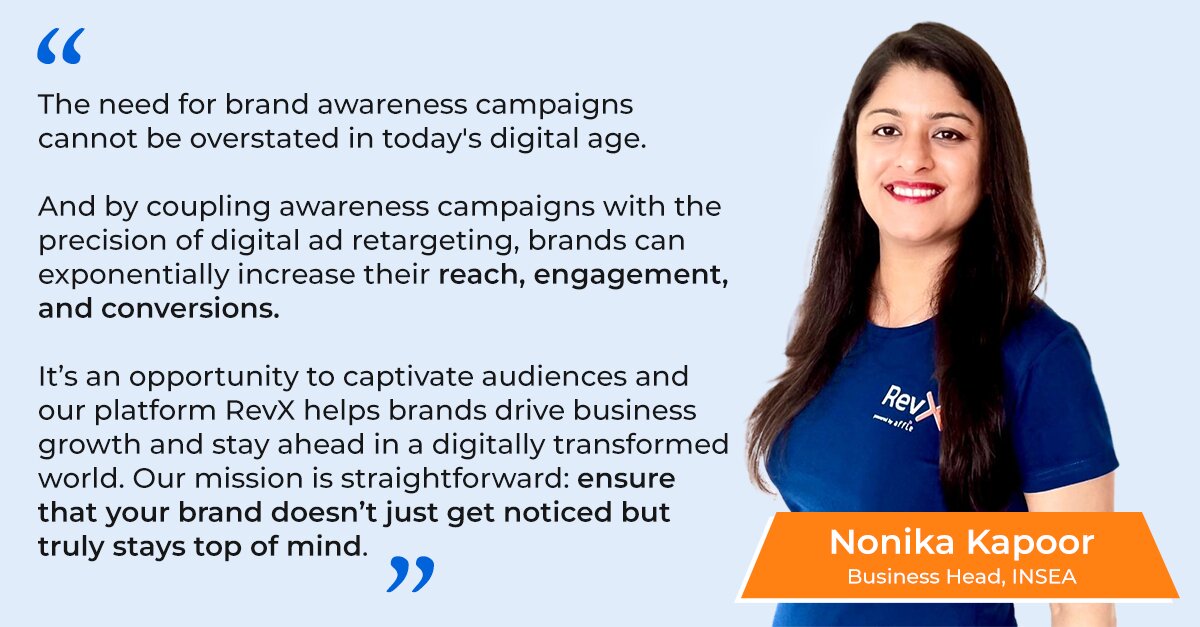In the fast-paced app marketing world, the pursuit of installs and conversions is an endless sprint. It’s tempting to believe that performance marketing alone holds the key to success.
After all, who can resist the dopamine hits of immediate results?
But relying solely on performance marketing won’t unlock the full potential of your app.
Especially in a privacy-first world where acquiring user data is increasingly complex. There’s a need to shift gears and embrace a holistic approach, prioritizing brand awareness campaigns alongside performance.
The Missed Opportunities:
Why app marketers overlook brand awareness campaigns
While this is a complex issue that needs a nuanced lens, the primary reasons boil down to this.
- Immediate ROI focus: App marketers are often incentivized to seek immediate ROI, leading to a focus on quick user acquisition and conversions. Whereas, brand awareness campaigns are long-term strategies that may not offer immediate results.
- Difficulty in measurement: Unlike performance-based campaigns with clear KPIs, measuring the direct impact of brand awareness campaigns is challenging.
One may struggle to attribute specific app installs or conversions directly to these campaigns, making it harder to justify the budget allocation. - Uncertain outcomes: Brand awareness campaigns are often associated with an element of uncertainty. App marketers may be hesitant to invest in campaigns that rely on intangible outcomes like improved brand perception, and user trust, as it’s difficult to quantify their direct impact on app success.
Why should you walk the road less taken?
As we navigate the changing digital landscape, the methods of reaching users are shifting. With increasing limitations on tracking and data use, the way we’ve monitored user activity is transforming, as we speak.
Naturally, the over-reliance on behavioral data is being challenged. Amid these changes, brand awareness steps up as a potent strategy for apps to not just survive but thrive.
In simple terms, brand awareness acts like a warm introduction to your app. It invites quality users through a friendly approach rather than pushing them with forceful ads based on behavioral targeting. In essence, it warms up the audience, attracting high-quality installs through an inbound approach. Here’s how it can help you win in the privacy era.
Overcoming Audience Reach Challenges
In the era of privacy, user data acquisition has become a lot more intricate. Brand awareness or brand-building campaigns, on the other hand, relies on creating a strong and recognizable identity that appeals to a broader audience.
Apps can now reach users who may have otherwise been difficult to target through conventional means. Let’s say you have a fitness app that promotes workout routines. In the past, you might have used data-driven methods to target users who have previously shown interest in fitness. However, this is no longer sustainable in the user-privacy era. Instead, you focus on creating a strong brand identity for your fitness app. You develop a recognizable and trusted brand that people associate with health and personalized fitness journeys.
Now, when users come across your app, whether through social media or paid ads, they immediately recognize it as a reliable source for their fitness needs. They’re drawn to your app’s values and what it represents, rather than being targeted solely based on their past actions. Combine this with contextual ads. Your fitness app’s ads pop up where health-conscious users already are.
Fostering Trust and Credibility
Never before have consumers been as aware of how their data is collected and used. A well-executed brand-building campaign emphasizes transparency, ethical practices, and user-centric values, creating a sense of trust and credibility around the app.
For instance, think of a financial app that openly explains how user data is used to personalize services and strictly safeguards sensitive information. This transparency makes users feel secure, building credibility that goes beyond just features and functions.
Embracing the Inbound Approach
Interruptive advertising strategies that rely heavily on user data are getting obsolete.
The time is now ripe to relook at how you leave your first impression on the wider audience pool. Brand-awareness ads build a slow yet solid foundation for how your audience perceives you. While immediate action might not be achieved, your audience will have your app in the back of their mind. And when they finally feel the need for it, it will shine on top of their mind.
Imagine you’re in the health section of a food delivery app. As you are browsing through the content, an ad pops up for a fitness app. It’s not invasive; it’s contextual. The ad seamlessly integrates with the content you’re already engaged with. This is the essence of an inbound approach.
This transition to an inbound approach demonstrates that apps are listening, understanding, and respecting users’ preferences and privacy. It’s a subtle shift that promises a more organic and engaging way to connect, allowing users to discover and explore apps without feeling bombarded. In this evolving landscape, embracing this approach is more than just a trend; it’s a strategic move that aligns with the changing user expectations and privacy concerns.

Concluding remarks
Evolving privacy norms are fundamentally reshaping brand-user connections. Investing in far-reaching awareness campaigns is no longer just an option, but a strategic necessity.
See how RevX can support your app growth story.
